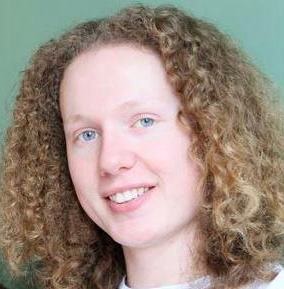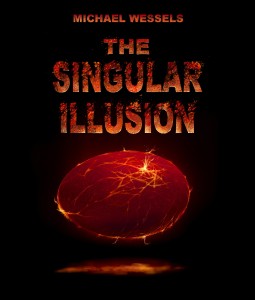Interview – Michael Wessels, author of The Singular Illusion
Self-Publisher’s Showcase: Today we are joined by Michael Wessels, author of The Singular Illusion. Welcome to the Showcase Lounge, Michael.
MW: Thank you, glad to be here.
SPS: For any of our readers that haven’t come across your work previously, can you take a moment to tell us all a little about yourself?
MW: Sure thing. I was born in South Africa and moved around a couple times before settling down in Canada. I have always been drawn to creative work and had that nourished by my father who is an artist. I wrote my first short story when I was around 10 and always wanted to write a full-length novel.
SPS: What are your perfect writing conditions, and how often do you write?
MW: That is tough to say. I did a lot of my brain storming and background work in a notebook by hand in coffee shops. It was the only way I was able to focus for a couple hours and get something done. I wouldn’t take any electronics with me, just a notebook and a pen and then sit and jot down bullet points of what I wanted to write. It was almost like writing the whole book while not worrying about structure or punctuation, which really helped keep things moving, I didn’t fret about if something wasn’t perfect, I just wrote it all down and kept ploughing forward.
SPS: Can you put your finger on the moment where you decided that you wanted to publish your work?
MW: Not exactly, no. I wasn’t sure I would finish the book, let alone publish it. In the first three or four months of writing I only managed to put down around 20,000 words and was losing steam. But luckily on Oct 31, 2012 I was pointed in the direction of National Novel Writing Month (NaNoWriMo), which challenges people to write 50,000 words in a month. Something you need to understand though is that I am a very competitive person and this took something I was doing by myself and made it a competition with people all over the world. I hit the target word count in 8 days, which blew me away. That would have to be the point when I thought it was possible, when I finished the rough draft.
SPS: Why do you think it is that you have found yourself writing in the style/genres that you do?
MW: I am a big nerd. I have always loved fiction and specifically fantasy stories. I love being able to read a story that completely removes me from the world I live in and transports me to one far away, or buried within our own. It’s that feeling of escape that I love.
SPS: Can you take a moment to tell us all about The Singular Illusion?
MW: When I was younger I heard the myth that people only used 10% of their brain and I immediately began to imagine how smart someone could be if they used the whole thing. The story builds from the myth and explores what would be possible if we were ten times as smart. It is centred on Matt Stevenssen, a boy about to graduate high school when he discovers this world of hyper intelligent people. People who can manipulate others and use unique mental powers to fight and help one another. An important theme I wanted to portray in the novel, and eventually the series, is that there is no “good” or “evil” side. The reader is a part of the decision on which side is correct and my goal was that different people would choose different sides.
SPS: What kind of person is Matt Stevennson, before the events occur? How prepared is he for what is about to happen?
MW: I don’t want to say he is the typical high school student, that sounds too cliché, but I wanted people to be able to relate to him quickly. He has potential and used to work really hard, but became lazy and uninterested over time in school. He could have been really prepared for what was to come, but he definitely isn’t. He is out of shape both mentally and physically and is immediately thrust into a fight between two super powers that can manipulate the entire world. He has to learn quickly and undergoes a few trials by fire.
SPS: How does he cope with the changes to his world whilst simultaneously trying to deal with the loss of his parents?
MW: This was one of the hardest things I had to get across to the reader. He was really close to his parents as a child, but in the last few years before the book picks up he grows distant. So there is a disconnect between them, but when he realizes they are gone it breaks him. All the distance and walls he put up between himself and his parents come down instantly. Initially he is overcome by emotion and falls apart; shutting out the world around him, but he quickly becomes numb to it. He almost purposefully forgets and falls back into the disconnected state he was in before, acting as if they are alive and he is just ignoring them like he used to, but then he remembers and breaks down again. The memory haunts him throughout the whole story; it is a driving factor in the decision he makes throughout the story.
SPS: Matt travels the globe learning new skills. Did you rely on places that you yourself have visited/lived to help with the research?
MW: Yeah I definitely used some of the places I have been and lived to help with where he goes. The small town that Matt is from and where the story starts is heavily influenced by the small town in Saskatchewan where I grew up and allowed me to fill out the character in a realistic environment before I ventured into the more fictional side of the story.
SPS: Who else could a reader expect to meet in your debut novel, and is there a love interest in there for Matt?
MW: That is actually funny that you ask that. When I started writing I was set against having any love interest in the story. I had read enough books where the main character is a high school student who saves the world because he loves one person. I was bored with that concept and it felt overused, but as I wrote the story the relationship just grew between the characters. I actually tried on two or three occasions to rewrite sections to remove it from the book, but at a certain point the characters choose for themselves. I am still adamant that Matt is driven to continue through the story by his own convictions more than just the need to have a girlfriend and I hope that comes across.
SPS: The novel is the first part of a scheduled trilogy. Are you a fan of cliff-hangers or are the events of the first novel mostly concluded?
MW: To those who haven’t read the book, you will have to wait and see if I like cliff-hangers; the people who have read it, will already know the answer. I believe it is important to have a strong series plot arc to span the gaps between the books, while still providing an arc in each book to reward the reader for finishing.
SPS: What can we expect from the concluding two books in the trilogy?
MW: Readers should expect that their views on which group is “good” and which is “evil” to be questioned. Both sides contain a little evil and a little good and it is going to be difficult to choose.
SPS: We do like to take a moment to find out how an author came up with their cover. Can you tell us about where the idea came from and how it came to be?
MW: The picture on the cover is a visual representation of Matt’s mind as described in the book. As I mentioned before, my dad is an artist and I worked with him to create a cover that was intriguing and yet simplistic.
SPS: Was the Self-Published/Indie-Published route always your preferred route for your work?
MW: Until a couple years ago no, I was more into getting it published by someone. I did some research and spoke to people who had done it either way and decided self-publishing was the best way for me. It allowed me to be available world wide, which really bolstered my decision because I have family and friends in other countries.
SPS: Has the experience so far been all that you thought it would be?
MW: In some ways yes and in some no. I was not prepared for how many times I would read my own book through the editing phase and how much I would want to change the story. One of the hardest things for me was keeping true to my original rough draft. The more I worked on it and the longer I lived in the world I created, the more outrageous I wanted to make the story. I wanted to test the characters by putting them in tougher situations because I already had come to know them, but I had to remind myself that the reader needs to get to know them too so I needed to keep the ground work.
SPS: If you could give one piece of advice for someone looking to get into writing, what would it be?
MW: Take part in NaNoWriMo. Even if you don’t finish, it has a huge group of people who support each other throughout the year and will give you an insight into what being an author is really like.
SPS: Before we bring this interview to a close, it’s your chance to name-drop. Anyone who you feel is deserving of more recognition at present or someone whose writing you have recently enjoyed? Now is your chance to spread the word…
MW: I definitely need to give a big thanks to my mom and dad Johann and Sandra Wessels who raised me to be the person I am that led me to publishing my first novel. Also thanks to my friends who read awful rough drafts and provided me with their constructive criticism.
SPS: Thank you for joining us today Michael, and all the best for the future.
MW: Thanks for having me.
SPS: For more information on Michael and his work, please do visit his Showcase Author page here.















I am very intrigued (and impressed) by the cover – and the explanation that it represents Matt’s mind raises more questions than it answers. Since I love books with no clear “good” guys vs “bad” ones, I’ll be checking it out. Thanks for sharing!